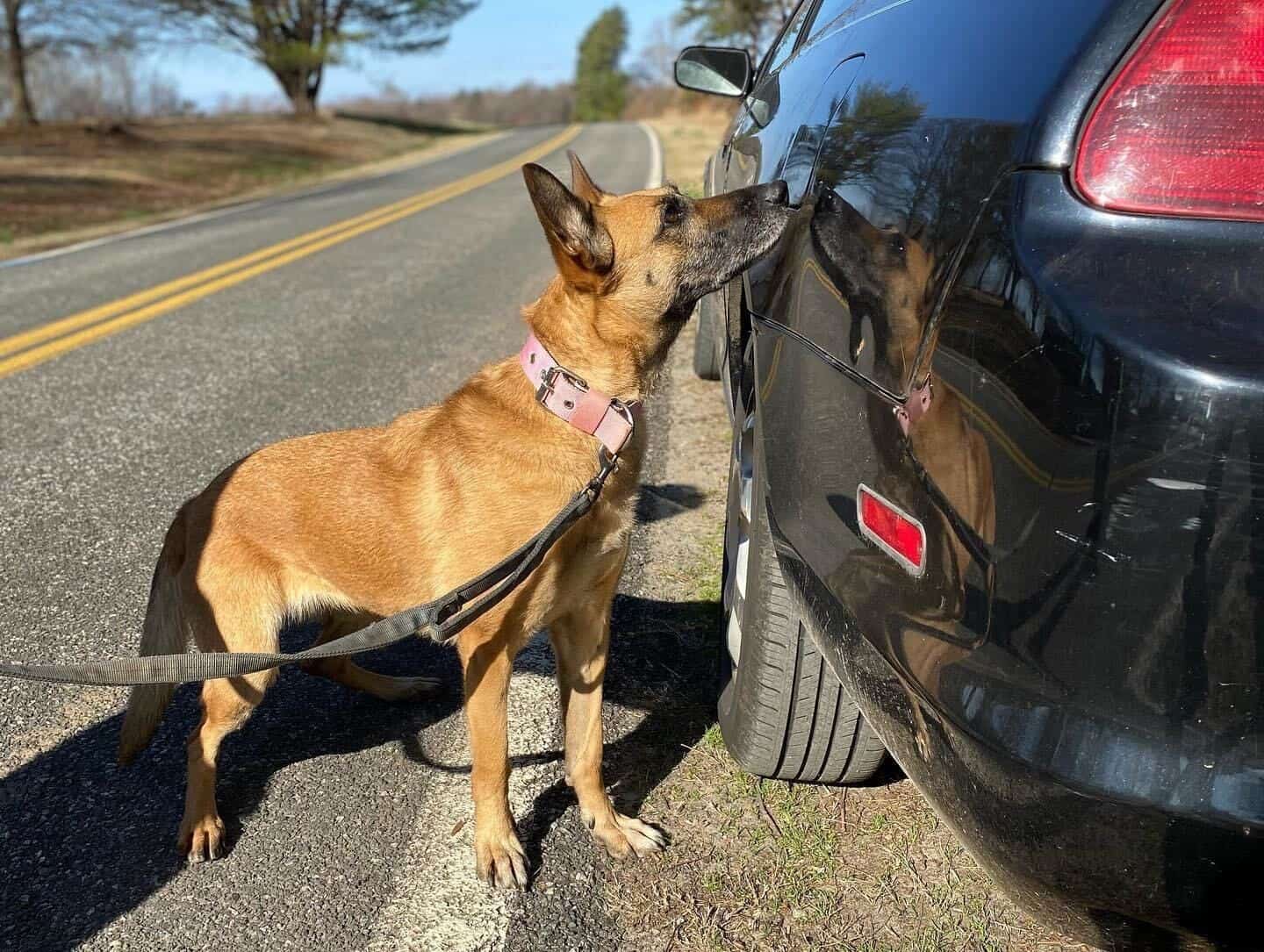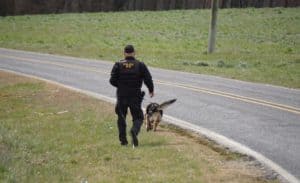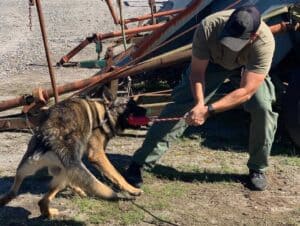For all of us, there comes a time in our professional lives when we have to call it a day – when we can no longer perform the duties we have been trained to do, or when we are simply burned out and entitled to our well-earned retirement.
It is no different for police dogs. They spend their most active years doing jobs they love, building a strong bond alongside their handler. These skilled dogs are usually high-energy, intelligent, and have a very strong hunt drive. They are also thoroughly tested and selected to ensure that their personality traits are well suited for police work. Whether they are trained for patrol work, or for detection purposes, or for trailing, these dogs are in their element when carrying out the tasks they are trained to perform.
Whilst this testing and selection enables trainers to identify the most suitable working dog candidates for particular jobs, it can cause a headache when the K9 approaches retirement. As their innate traits have been harnessed throughout their lives, it can be a difficult transition from active police work to retirement. For the benefit of the dog, it is useful to take some time to consider what life will look like for a Police K9 after they retire.
At what age do police dogs typically retire?
On average, it is uncommon to see police dogs working past the age of eight or nine years old. At that stage of their life, it is very difficult for them to keep up with the demanding nature of their job.
However, it is a difficult question to answer with any certainty, as a number of factors can influence the exact retirement age of a police dog:
- Breed characteristics/life expectancy. As you may be aware, some dog breeds tend to live longer than others. For example, a Labrador Retriever or Belgian Malinois (averaging 10-14 years) is likely to have a longer lifespan than a German Shepherd or Bloodhound (averaging 9-11 years). These characteristics can play a part in retirement plans for a K9, depending on the expectations of how long the breed typically lives.
- Health issues. As any dog grows older, regular veterinarian appointments will often highlight injuries or illnesses. For Police K9s, where fitness, agility and stamina are important aspects of the job, retirement may be brought forward if a veterinarian discovers an underlying health problem.
- The nature of their work. Different police dogs trained for different purposes will obviously have different experiences. In general, though, the work of a Police K9 can be dangerous, involves high-risk situations, and is physically demanding. Even supremely fit Police K9s may have to retire sooner if their body is worn down from their physical exertions.
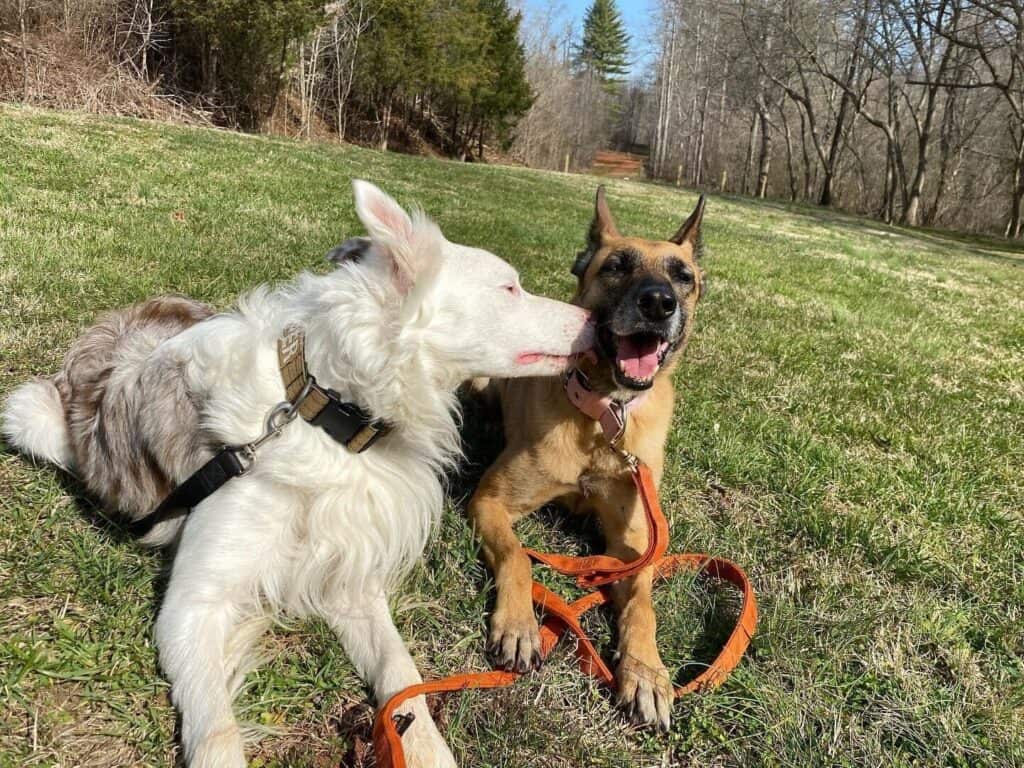
What are the options for police dogs after finishing active duty?
For Police K9s who have completed their active work as part of a law enforcement team, there are several options for them to enjoy a peaceful, happy and tranquil retirement. But when considering where to place a police dog after retirement, the most important thing for the humans involved in the decision-making process is to remember that this isn’t just a regular dog.
In active work, police dogs enjoy lots of physical and mental stimulation, in addition to plenty of human interaction. Taking a working dog from that busy environment, and changing their life so they are confined to a crate for most of their day, would not be an appropriate or fulfilling retirement for them. It is therefore vital that everyone involved understands that, in the transition from active working dog to pet dog, the needs of the dog are placed at the forefront of the thought process.
One way to continue to provide the dog with physical and mental stimulation is to give them the opportunity to continue utilizing their skills, even in retirement. For example, a detection dog could become proficient with scent work games. This would provide the dog with adequate mental stimulation, but in an environment which would be far more relaxed and much less physically demanding.
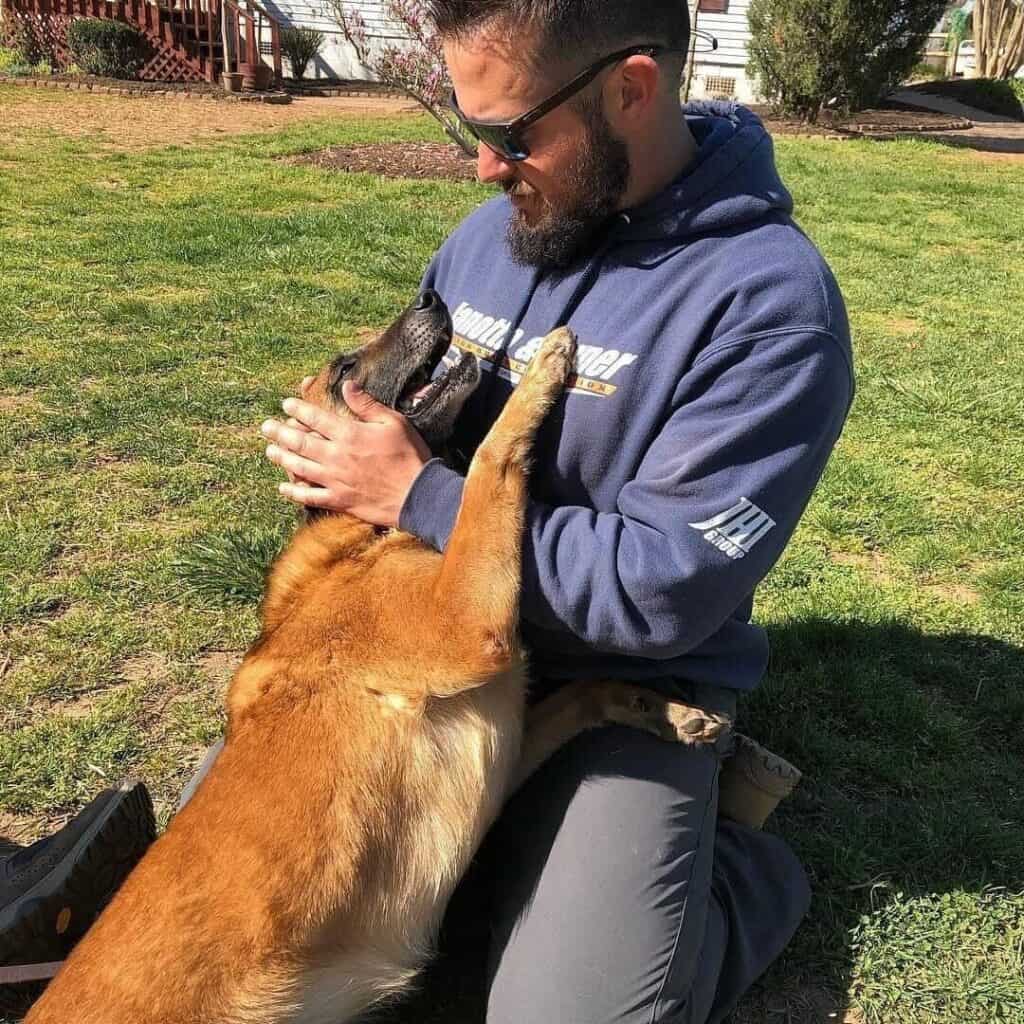
In terms of the dog’s living situation upon retirement, here are some of the more common scenarios:
Live with their handler
Over the years, many police K9s forge a very close bond with their handler. The handler has also already cared for the dog for several years, and knows any idiosyncrasies, health issues or behavioral traits. For these reasons, it it can often be the most preferable option for the retiring K9 to live with their handler.
Live with another officer in the agency
If, for whatever reason, a retired K9 cannot stay with their partner, then they can often be adopted out to another officer within the agency. This can be another good option for the K9, as they have likely known their new owner for some time before moving in. The new owner is also likely to be aware of the needs of a K9, and this should make for an easier transition.
Public adoption programs
There are some organizations and non-profits which take in retired working dogs and provide adoption programs for the public. For social dogs, this can lead to a wonderful retirement with an active family. These organizations usually have rigorous adoption applications and measures in place to make sure that the dog is a good match for the family, and vice versa.

In conclusion
Police dogs are deserving of a happy, fulfilled retirement. Whichever route an agency decides to take when a K9 retires, the priority must always be to ensure that the dog has an enjoyable retirement as gratitude for their work towards protecting the community.
With a number of possibilities for police dogs after they finish active duty, it is important for the agency to ensure that the needs of the K9 will be met when they become a pet dog.

